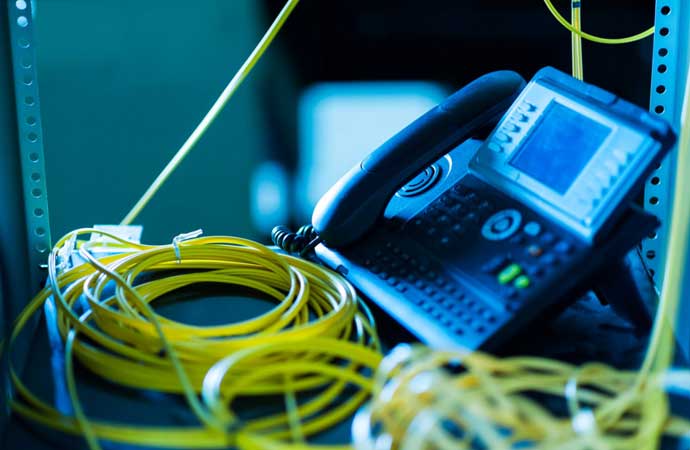
The Future of VOIP Systems: Emerging Technologies and Trends
The future of VoIP systems is an exciting and rapidly evolving field, with emerging technologies and trends that are shaping the industry in new and innovative ways. From the impact of artificial intelligence and machine learning to the potential of 5G networks, this blog explores the latest developments and provides insights into what we can expect from VoIP in the years ahead.
Whether you're a business owner, IT professional, or simply interested in the latest tech trends, this article is a must-read for anyone looking to stay ahead of the curve in the world of VoIP. We provide information on the direction of the VoIP industry in Houston, Texas.
Explore!The Evolution of Communication Systems | Low Voltage Houston
Voice over Internet Protocol (VoIP) systems have become increasingly popular in recent years as businesses and individuals looking for more cost-effective and efficient ways to communicate. However, the VoIP industry is far from stagnant, with emerging technologies and trends set to shape its future in new and exciting ways.
We will explore some of the most significant emerging technologies and trends in the VoIP industry and examine how they're likely to impact the future of communication.

Artificial Intelligence and Machine Learning
Artificial intelligence (AI) and machine learning (ML) are already making waves in many industries, and the VoIP industry is no exception. One of the key benefits of AI and ML in VoIP is their ability to improve the quality of calls by reducing background noise and improving speech recognition.
They can also help identify and block spam and robocalls, reducing the number of unwanted calls users receive.
5G Networks
The arrival of 5G networks is set to transform the way we communicate, and VoIP is no exception. With 5G, users can expect faster data transfer rates, lower latency, and more reliable connections.
This will enable new and innovative VoIP applications that were previously not possible, such as high-quality video calls and augmented reality communication.
Network WiringInternet of Things (IoT)
The IoT is the interconnected network of physical devices that can communicate and exchange data with each other. In the VoIP industry, IoT devices can be used to improve communication between users and their devices.
A user could use a smartwatch to answer a call or control their VoIP settings. Additionally, IoT devices can be used to improve the quality of VoIP calls by optimizing network connections and reducing interference.
Cloud-Based Services
Cloud-based services are already popular in many industries, and the VoIP industry is no exception. Cloud-based VoIP services offer increased scalability, flexibility, and cost-effectiveness, making them an attractive option for businesses of all sizes.
Cloud-based services can be easily integrated with other cloud-based services, such as customer relationship management (CRM) software, to provide a seamless user experience.
Security and Privacy
As VoIP becomes increasingly popular, security and privacy are becoming major concerns for users. Emerging technologies such as blockchain can be used to improve security and privacy by providing a decentralized and transparent platform for communication.
Additionally, encryption technologies can be used to secure VoIP calls and prevent eavesdropping.
Contact Us Today!
